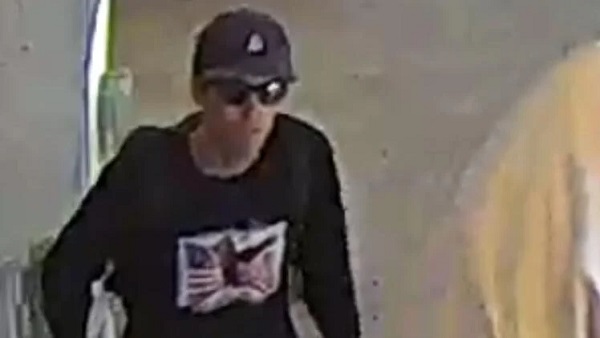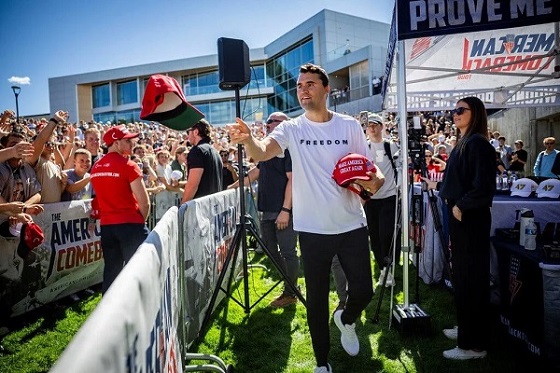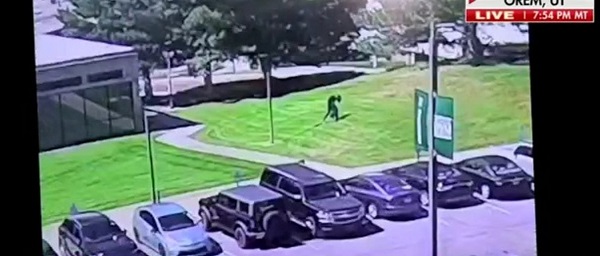Crime
U.S. Lawmakers Confront Chinese Government Conspiracy Behind Marijuana Boom

Officials testified that Chinese state-backed grow networks have created a $153 billion black market in Oklahoma alone, with suspicious activity reported near the nation’s largest munitions plant.
In chilling testimony to Congress, law enforcement officials warned that Chinese organized crime groups, operating with Beijing’s support, have transformed America’s marijuana boom into a $153 billion black-market industry in Oklahoma alone — an enterprise marked by execution-style killings and grow sites planted near sensitive U.S. military infrastructure.
Suggesting that this Chinese crime wave — largely unrecognized by the American public — is part of a trillion-dollar enterprise embedded in multiple states, legislators heard that the epicenters include Oklahoma, Maine, California, and Michigan. Thousands of Chinese-run farms have proliferated under lax state laws, with workers smuggled across the Mexican border and forced into slave-like conditions. Properties are acquired through real estate and legal fraud, while the operations feed a nationwide criminal network tied to the Chinese Communist Party, fentanyl trafficking, weapons smuggling, prostitution, and global money laundering.
The Subcommittee on Oversight, Investigations, and Accountability hearing — entitled “Invasion of the Homeland: How China is Using Illegal Marijuana to Build a Criminal Network Across America” — heard first from Donnie Anderson, Director of the Oklahoma Bureau of Narcotics and Dangerous Drugs Control.
Anderson testified that Oklahoma’s loose medical marijuana framework inadvertently opened the door to transnational syndicates, fueling what he described as a $153 billion black-market industry. After more than three decades in public safety, he said, “the impact of black-market marijuana in Oklahoma is unlike anything I have encountered in my career. What is even more alarming is the growing influence and involvement of the Chinese Communist Party in this illicit industry.”
Anderson explained that Chinese nationals dominate the operations, concealing control through straw buyers, fraudulent licenses, and shell companies, often backed by attorneys, real estate agents, and consultants. He warned that the CCP also maintains control by leveraging encrypted apps. “Because WeChat is based in mainland China and encrypted, U.S. law enforcement cannot serve legal process or conduct electronic surveillance as we would with domestic platforms,” he said, “making them a major obstacle in our investigations.”
—
The human toll has been severe. In 2022, four Chinese nationals were executed and a fifth critically wounded at an illegal grow near Hennessey, Oklahoma. In July 2025, a Canadian national was murdered execution-style at a grow near Lake Thunderbird, in what investigators believe was a targeted robbery.
—
Anderson testified there is “no doubt” the Chinese government has shown interest in Oklahoma’s marijuana industry, citing documented financial transfers to the Bank of China and connections to Chinese state-owned businesses. He further warned that the CCP is leveraging its global influence apparatus to maintain control of these sites. “It is my belief that the CCP maintains access to the criminal marijuana site operations, particularly through its known practice of controlling expatriates via so-called ‘police stations,’” he told lawmakers.
He also highlighted national security risks from the physical location of these grows. In one ongoing investigation, the Department of Defense flagged suspicious activity at a marijuana grow run by an ethnic Chinese group next to the McAlester ammunition plant — the nation’s largest munitions facility, home to nearly one-third of the Pentagon’s stockpile and responsible for producing the MOAB bomb.
“Alarmingly, many of these grows are located near critical infrastructure, including military bases and pipelines,” Anderson added, warning that the proximity of foreign-run criminal operations to sensitive U.S. defense assets raised extraordinary risks.
Pressed by a Georgia legislator on why Americans remain unaware of this foreign crime wave, Anderson stressed the scale and sophistication of the operations. “When I say sophisticated, I mean at a level that law enforcement across the nation has never seen before — that complex, that layered. They hide themselves under many layers of LLCs and ownership structures,” he said.
As an example, Anderson described how Oklahoma registries might show a “John Smith” listed as the 75 percent owner of a marijuana business. “But when you dig in, you find John has never put up the $3,500 required to put his name on that license. The money comes from elsewhere, because Chinese nationals cannot directly do that in the state of Oklahoma. Meanwhile, the real organizers are often people in places like Flushing, New York, or California. They control operations across the United States but may never step foot in Oklahoma, except to occasionally visit.”
He added: “And this isn’t just an Oklahoma problem — it’s global. Chinese nationals are doing similar things in Latin America and the Caribbean, where they are building infrastructure, even roads, as part of larger investments. There’s always a reason behind it, and it connects back here to the United States. At its core, this is about national security, not just Oklahoma. And you’re right — most Americans have no idea this is happening.”
The panel’s second witness, legal scholar Paul Larkin, argued that Chinese organized crime groups cannot be separated from the state whose nationals dominate them. “The Chinese organized crime elements are working with the tacit agreement of the PRC and CCP,” he testified, stressing that U.S. conspiracy law provides the tools to prosecute these networks as such. He pointed to the long-established legal principle of willful blindness: juries are entitled to infer intent from patterns of conduct, even without express agreements.
One legislator asked: “Earlier this week, we discussed how foreign adversaries see U.S. agriculture not only as an economic target but also as a homeland security vulnerability. Mr. Larkin, how significant is land acquisition to the broader strategy of Chinese criminal groups operating in America?”
“First, it gives them property to grow and process illicit drugs, which can then serve as distribution hubs,” Larkin said. “But beyond that, certain sites — especially indoor grows — could also be leveraged for espionage. They could be positioned to monitor nearby American communities, military bases, or other sensitive facilities. That makes land acquisition not just a criminal concern, but a serious national security threat.”
If Larkin pressed the legal case for direct CCP accountability, the next witness, retired DEA executive Chris Urben, supplied the operational picture. He stressed that federal task forces must deploy the RICO Act — once used against the Italian mafia — to give under-resourced state agencies the support to combat what he called the new dominant crime element from China.
Drawing on his 24-year career, Urben testified that Chinese money laundering networks have quietly transformed the economics of the global drug trade, emerging around 2016 as the predominant launderers for criminal groups worldwide. China’s value to the Mexican cartels, he explained, goes beyond supplying synthetic opioid precursors; its laundering services have supercharged cartel profits, boosting proceeds by as much as five percent.
Asked by a legislator how China had seized global dominance in money laundering, Urben was blunt: the advantage is WeChat. Controlled by the Chinese Communist Party, the encrypted platform cannot be tapped by U.S. law enforcement.
“No other global crime network has a state-protected, trusted communications system like that,” Urben said. “WeChat needs to be disrupted. It cannot continue to function as a secure platform for criminal money laundering. There must be a state-level, legislated solution with the Chinese government — one that ends WeChat’s role in these networks.”
He warned that dismissing marijuana grows as “just weed cases” is a dangerous mistake. “They are harmful in and of themselves, and they also help fuel Chinese money laundering networks and other Chinese transnational crime-linked activity such as human trafficking, fentanyl distribution, and other dangerous and harmful activities.” Such cases, he urged, must be treated as RICO-prosecutable money-laundering conspiracies tied directly into the global fentanyl and trafficking economy.
At the outset of the hearing, Chairman Josh Brecheen of Oklahoma framed the issue in broader terms. “We are here today to talk about an important issue, significant national security implications,” he said, making clear that the problem was not confined to his home state but stretched “to Maine, California, and all across our homeland.”
Brecheen laid out the scale of what lawmakers were confronting: thousands of Chinese-run marijuana grow operations, not isolated in backwoods counties but dispersed nationwide — embedded in tribal lands, national parks, and suburban communities. He stressed that these are not simple drug cases. “Many Chinese illegal operations serve as fronts for a wider criminal enterprise, including human and drug trafficking, prostitution, weapons smuggling, and money laundering,” he said. These networks, often with direct or indirect ties to the CCP, have built a sophisticated underground criminal infrastructure in the United States.
The national security implications, he warned, were profound. “We’ve enabled these foreign organizations with potential links to the CCP to build up a sophisticated network throughout the United States, which facilitates a wide range of other criminal activity and presents a national security threat.”
Some of the foreign nationals running these sites, Brecheen added, are more heavily armed than the sheriffs and deputies who might stumble onto them.
After sketching the scope of the threat, Brecheen turned to “paint the picture” of how the operations unfold on the ground. He described how groups of Chinese nationals, affiliated with transnational criminal organizations, cross the southern border and fan into rural states like Oklahoma. With them are vulnerable workers, lured under the false promise of legal employment. Once in place, the crime groups recruit a local resident, offering several hundred thousand dollars to use their name and identity to purchase farmland. It is a proposition the resident “cannot refuse.”
The arrangement moves quickly. Within days, a seemingly ordinary property is converted into a sprawling grow site. Workers are forced into 14-hour shifts, confined to cramped quarters with little water or ventilation. Toxic pesticides — banned in the United States — are burned on-site, creating fumes that poison both the laborers and the surrounding environment. Armed guards oversee the operation, ensuring obedience. The marijuana produced is high-potency and contaminated, yet within weeks it is trafficked across the country, from Oklahoma to New York, feeding an illicit market worth many billions.
The Bureau is a reader-supported publication.
To receive new posts and support my work, consider becoming a free or paid subscriber.
Crime
Struggle for control of the Sinaloa Carel has ramifications for Canada

Washington Moves Against El Mayo’s Cartel Network, Accusing It of Bribery, Political Capture, and Cross-Border Fentanyl Trade
The U.S. Treasury’s Office of Foreign Assets Control has announced sweeping sanctions on the Los Mayos faction of the Sinaloa Cartel, a move that highlights the group’s violent war with El Chapo Guzmán’s heirs for control of a multibillion-dollar fentanyl empire entrenched in more than 40 nations including Canada. The sanctions also pointed to deep corruption of political and security offices on Mexico’s northwest border.
“The Sinaloa Cartel is a foreign terrorist organization that continues to traffic narcotics, launder its proceeds, and corrupt local officials,” said John K. Hurley, Treasury’s under secretary for terrorism and financial intelligence. “Today’s actions cut at the heart of the political and commercial infrastructure that Los Mayos relies upon to poison Americans with fentanyl and maintain control of territory in Baja California.”
Once a monolithic enterprise spanning cocaine, heroin, methamphetamine, marijuana, and now fentanyl routes across the Americas, the Sinaloa Cartel has fractured since the imprisonment of co-founders Joaquín “El Chapo” Guzmán and Ismael “El Mayo” Zambada García. Their successors — Guzmán’s sons, collectively called Los Chapitos, and the Zambada loyalists known as Los Mayos — have plunged northwest Mexico into open war.
A sign of the Mayo faction’s foreign reach emerged in British Columbia months ago, when court filings revealed that a fortified compound in Surrey, south of Vancouver, housed a trafficking syndicate tied directly to El Mayo’s network. According to the government’s civil-forfeiture suit, the group negotiated cocaine shipments with Zambada’s emissaries and stockpiled a cache of weapons, opioids, and counterfeit pharmaceuticals. When the RCMP raided the mansion, they found Hikvision surveillance systems, encrypted phones, and nearly a kilogram of Ecstasy alongside fentanyl pills and counterfeit Xanax. The property — minutes from the Peace Arch border crossing — is now the subject of a multimillion-dollar forfeiture case.
After years of tense coexistence, hostilities between the Chapo and Mayo factions erupted last year, and the human toll has been staggering. Reuters and the Associated Press reported that homicides in Sinaloa surged to 883 in the first half of 2025, up from 224 a year earlier. Entire towns have been emptied and convoys of gunmen have left highways strewn with burned-out vehicles.
OFAC, in its designation notice, confirmed: “Turf wars between Los Mayos and Los Chapitos have resulted in the deaths of over a thousand people in the Mexican state of Sinaloa.”
At the center of today’s sanctions is Juan José Ponce Félix, better known as El Ruso. OFAC identified him as “the founder and leader of the primary armed wing of Los Mayos,” controlling routes in Baja California and extending the faction’s fentanyl operations north. A 2015 indictment from the Southern District of California described El Ruso as the commander of “a fleet of soldiers” responsible for kidnappings, hostage-taking, torture, and murder in furtherance of Sinaloa Cartel interests. Now, OFAC says, his dominance in Baja has become a key pillar of Los Mayos’ trafficking empire. Earlier this week, the State Department offered a $5 million reward for information leading to his arrest.
The designations go beyond gunmen. OFAC spotlighted Rosarito, a coastal town just 15 miles south of San Diego, as a laboratory of cartel political capture. Los Mayos, it said, operated through the Arzate brothers — Alfonso and René — and their financial lieutenant, Jesús González Lomelí, who owned bars, restaurants, and resorts across Mexico, used to launder millions in cartel proceeds.
These commercial fronts were paired with direct political influence. Candelario Arcega Aguirre, a cartel operative with close ties to Rosarito’s then-mayor, Hilda Araceli Brown Figueredo, leveraged his relationship to place allies in the municipal Department of Public Security. According to OFAC, Arcega, González, and Brown “collected extortion payments for the Arzates, assisted in managing the Arzate brothers’ operations, and ensured protection for the Arzates’ criminal activities by the Department of Public Security in Rosarito.”
The network extended to a transportation company, Transporte Urbano y Suburbano del V Municipio S.A. de C.V., which OFAC identified as a laundering vehicle for Arcega. All told, the sanctions designated not just traffickers but a matrix of businessmen and public officials accused of entwining Rosarito’s government with cartel command.
U.S. officials describe the cartel as a global enterprise, with distribution and laundering nodes in more than 40 countries and thousands of operatives and facilitators. Canada has been deeply saturated in that network, a surge that accelerated after former Prime Minister Justin Trudeau eased immigration requirements for Mexican citizens.
Court filings in the British Columbia case alleged that the Surrey-based network had the clout to negotiate supply terms directly with El Mayo until his arrest by U.S. law enforcement in July 2024. That capture “disrupted the DTO’s efforts to import and distribute cocaine in Canada,” the documents said, forcing the group to seek new contacts in Mexico. The cache discovered at the mansion included 400 grams of counterfeit Xanax, 810 oxycodone pills, 5.5 grams of fentanyl, and sophisticated video surveillance equipment designed to fortify the property against raids.
The Canadian government formally listed the Sinaloa Cartel as a terrorist entity in February 2025, following the State Department’s U.S. designation. By June, OFAC had moved to sanction the Chapitos wing of the cartel. With today’s action, both sides of the cartel’s civil war are now under U.S. financial blockade.
The Bureau is a reader-supported publication.
To receive new posts and support my work, consider becoming a free or paid subscriber.
Crime
Time to call Antifa what it is — a terrorist organization
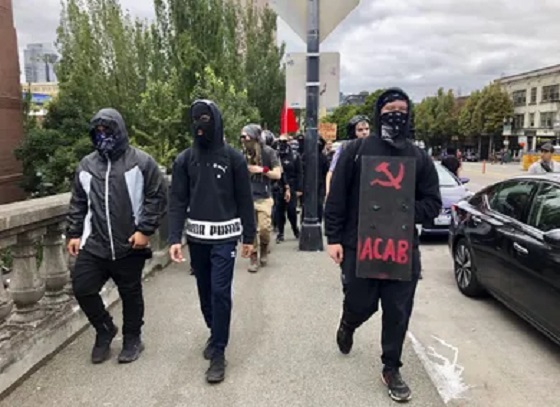
Quick Hit:
President Trump announced Wednesday he will designate Antifa a “MAJOR TERRORIST ORGANIZATION,” calling it a “sick, dangerous, radical left disaster” and vowing to investigate its funders. The move follows Charlie Kirk’s assassination by a suspect tied to extremist leftist ideology.
Key Details:
- On Truth Social, Trump wrote: “I am pleased to inform our many U.S.A. Patriots that I am designating ANTIFA, A SICK, DANGEROUS, RADICAL LEFT DISASTER, AS A MAJOR TERRORIST ORGANIZATION.”
- Trump added that he would recommend “those funding ANTIFA be thoroughly investigated in accordance with the highest legal standards and practices.”
- Antifa, short for “anti-fascist,” has no formal leadership structure but is known for violent clashes with police and for stoking riots at protests. Trump said earlier this week he was “100%” in favor of labeling the group as a terror organization.
Diving Deeper:
President Trump on Wednesday escalated his administration’s push against violent left-wing groups by declaring that Antifa will be designated as a “major terrorist organization.” Posting the announcement on Truth Social, Trump described the group as “a sick, dangerous, radical left disaster” and emphasized that investigations into Antifa’s backers should begin immediately. “I will also be strongly recommending that those funding ANTIFA be thoroughly investigated in accordance with the highest legal standards and practices,” Trump said.
The decision follows mounting calls for action in the wake of conservative activist Charlie Kirk’s assassination last week. Authorities have identified the suspect, Tyler Robinson, as a 22-year-old who was “deeply indoctrinated with leftist ideology.” The tragedy has intensified pressure on the administration to act against groups viewed as fueling extremist violence.
Antifa, which stands for “anti-fascist,” is less a formal organization than a loose movement. Its members, often dressed in black and masked, are notorious for showing up at protests to provoke violent clashes with law enforcement and political opponents. While its supporters describe the group as anti-authoritarian, critics point out its consistent record of property destruction, rioting, and violent confrontations.
Trump had previewed the move earlier in the week, telling reporters he was “100%” supportive of officially designating the group as a terrorist organization. The announcement also aligns with Trump’s longstanding campaign promise to crack down on lawlessness and protect communities from radical ideologies.
By targeting Antifa not just in name but by directing legal scrutiny toward its funding networks, Trump is signaling a more aggressive federal posture toward violent left-wing movements. The designation would allow federal authorities to treat Antifa’s activities with the same severity reserved for foreign terrorist groups, widening the scope of investigations and penalties against those linked to its operations.
(AP Photo/Gillian Flaccus)
-

 Frontier Centre for Public Policy21 hours ago
Frontier Centre for Public Policy21 hours agoBloodvein Blockade Puts Public Land Rights At Risk
-

 Business1 day ago
Business1 day agoDeportations causing delays in US construction industry
-

 Alberta1 day ago
Alberta1 day agoParents group blasts Alberta government for weakening sexually explicit school book ban
-

 Crime2 days ago
Crime2 days agoCanadian teacher showed Charlie Kirk assassination video to young students, said he deserved to die
-
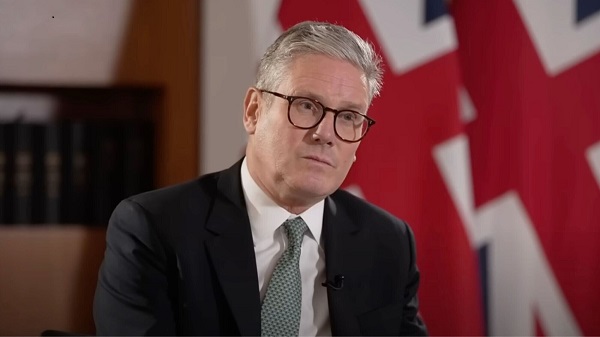
 International2 days ago
International2 days agoTrump to Confront Starmer Over UK Free Speech Laws During State Visit
-

 MAiD2 days ago
MAiD2 days agoFamous Canadian children’s author Robert Munsch says he plans to die by euthanasia
-
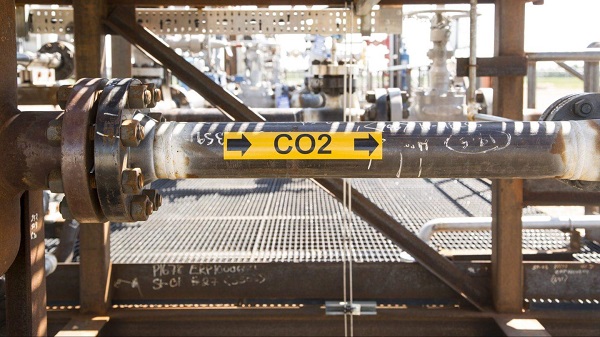
 Alberta2 days ago
Alberta2 days agoAlberta updates TIER system: Businesses can direct compliance payments to on-site technologies
-

 Automotive1 day ago
Automotive1 day agoMichigan could be a winner as companies pull back from EVs




